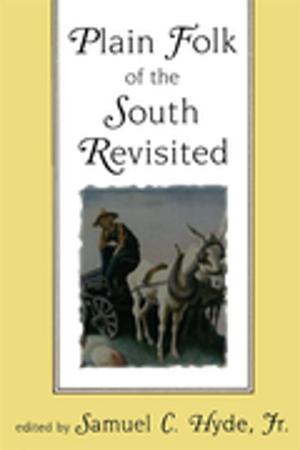| Author: | James Davis May | ISBN: | 9780807162620 |
| Publisher: | LSU Press | Publication: | March 7, 2016 |
| Imprint: | LSU Press | Language: | English |
| Author: | James Davis May |
| ISBN: | 9780807162620 |
| Publisher: | LSU Press |
| Publication: | March 7, 2016 |
| Imprint: | LSU Press |
| Language: | English |
Grounded in wonder and fueled by an impulse to praise, the poems in James Davis May's debut collection, Unquiet Things, grapple with skepticism, violence, and death to generate lasting insights into the human experience. With compassion and humor, this second and final volume in Claudia Emerson's Goat Island Poets series exposes the unseen tragedies and rejoices in the small, surprising moments of grace in everyday life.
May's poems impart sincere astonishment at the natural world, where experiences of nature serve as "stand-ins, almost, / for grace." His poems seek to transcend cynicism, turning often to the landscapes of North Georgia, his native Pittsburgh, and eastern Europe, as well as to his literary forebears, for guidance. For the poet, no force propels that transcendence more powerfully than love: love for his wife and daughter, love for language, and love for the incomprehensible world that he inhabits. These stylistically varied poems are by turns conversational, earnest, self-deprecating, meditative, and often funny, whether they're discussing grand themes such as love and beauty, or more corporeal subjects like fever and food poisoning.
Lyrical and strange, tragic and amusing, Unquiet Things traces an experiential journey in the ordinary world, uncovering joys that span from the lingering memories of childhood to the losses and triumphs of adulthood.
Grounded in wonder and fueled by an impulse to praise, the poems in James Davis May's debut collection, Unquiet Things, grapple with skepticism, violence, and death to generate lasting insights into the human experience. With compassion and humor, this second and final volume in Claudia Emerson's Goat Island Poets series exposes the unseen tragedies and rejoices in the small, surprising moments of grace in everyday life.
May's poems impart sincere astonishment at the natural world, where experiences of nature serve as "stand-ins, almost, / for grace." His poems seek to transcend cynicism, turning often to the landscapes of North Georgia, his native Pittsburgh, and eastern Europe, as well as to his literary forebears, for guidance. For the poet, no force propels that transcendence more powerfully than love: love for his wife and daughter, love for language, and love for the incomprehensible world that he inhabits. These stylistically varied poems are by turns conversational, earnest, self-deprecating, meditative, and often funny, whether they're discussing grand themes such as love and beauty, or more corporeal subjects like fever and food poisoning.
Lyrical and strange, tragic and amusing, Unquiet Things traces an experiential journey in the ordinary world, uncovering joys that span from the lingering memories of childhood to the losses and triumphs of adulthood.















